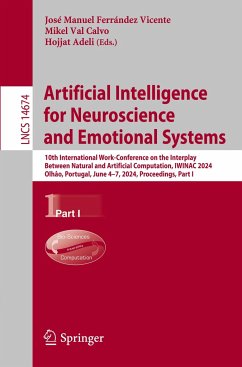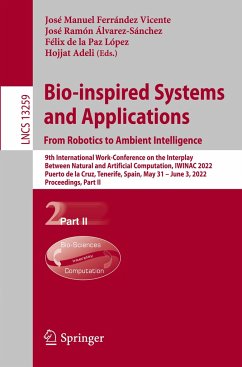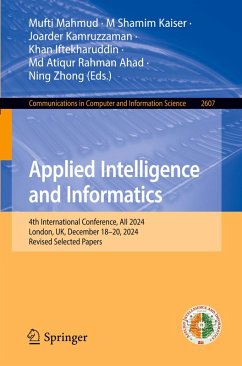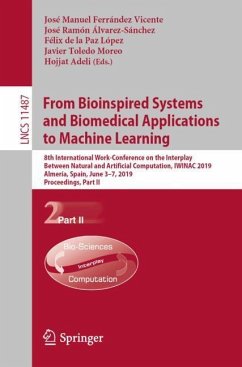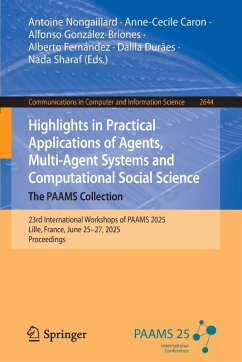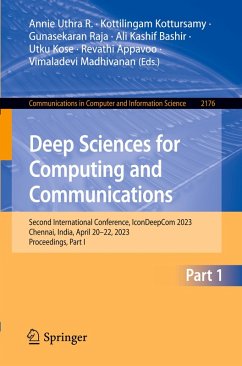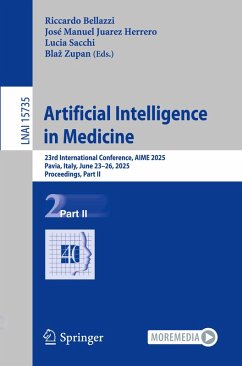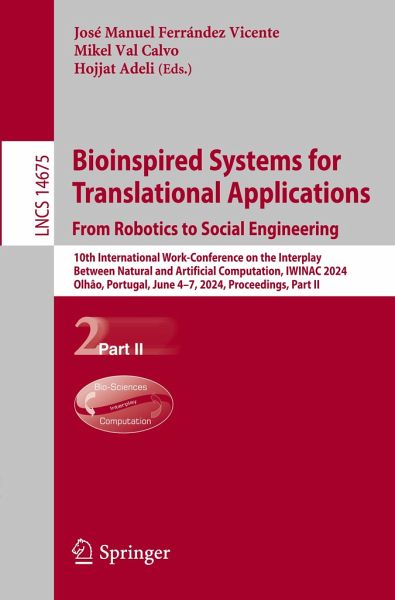
Bioinspired Systems for Translational Applications: From Robotics to Social Engineering
10th International Work-Conference on the Interplay Between Natural and Artificial Computation, IWINAC 2024, Olhâo, Portugal, June 4-7, 2024, Proceedings, Part II
Herausgegeben: Ferrández Vicente, José Manuel; Val Calvo, Mikel; Adeli, Hojjat

PAYBACK Punkte
34 °P sammeln!
The two volume set LNCS 14674 and 14675 constitutes the proceedings of the 10th International Work-Conference on the Interplay Between Natural and Artificial Computation, IWINAC 2024, which took place in Olhâo, Portugal, during June 4-7, 2024.The 99 full papers presented in these proceedings were carefully reviewed and selected from 193 submissions. They were organized in topical sections as follows:Part I: Machine learning in neuroscience; artificial intelligence in neurophysiology; neuromotor and cognitive disorders; intelligent systems for assessment, treatment, and assistance in early sta...
The two volume set LNCS 14674 and 14675 constitutes the proceedings of the 10th International Work-Conference on the Interplay Between Natural and Artificial Computation, IWINAC 2024, which took place in Olhâo, Portugal, during June 4-7, 2024.
The 99 full papers presented in these proceedings were carefully reviewed and selected from 193 submissions. They were organized in topical sections as follows:
Part I: Machine learning in neuroscience; artificial intelligence in neurophysiology; neuromotor and cognitive disorders; intelligent systems for assessment, treatment, and assistance in early stages of Alzheimer's disease and other dementias; socio-cognitive, affective and physiological computing; affective computing and context awareness in ambientintelliigence; learning tools to lecture;
Part II: Machine learning in computer vision and robotics; bio-inspired computing approaches; social and civil engineering through human AI translations; smart renewable energies: advancing AI algorithms in the renewable energy industry; bioinspired applications.
The 99 full papers presented in these proceedings were carefully reviewed and selected from 193 submissions. They were organized in topical sections as follows:
Part I: Machine learning in neuroscience; artificial intelligence in neurophysiology; neuromotor and cognitive disorders; intelligent systems for assessment, treatment, and assistance in early stages of Alzheimer's disease and other dementias; socio-cognitive, affective and physiological computing; affective computing and context awareness in ambientintelliigence; learning tools to lecture;
Part II: Machine learning in computer vision and robotics; bio-inspired computing approaches; social and civil engineering through human AI translations; smart renewable energies: advancing AI algorithms in the renewable energy industry; bioinspired applications.





